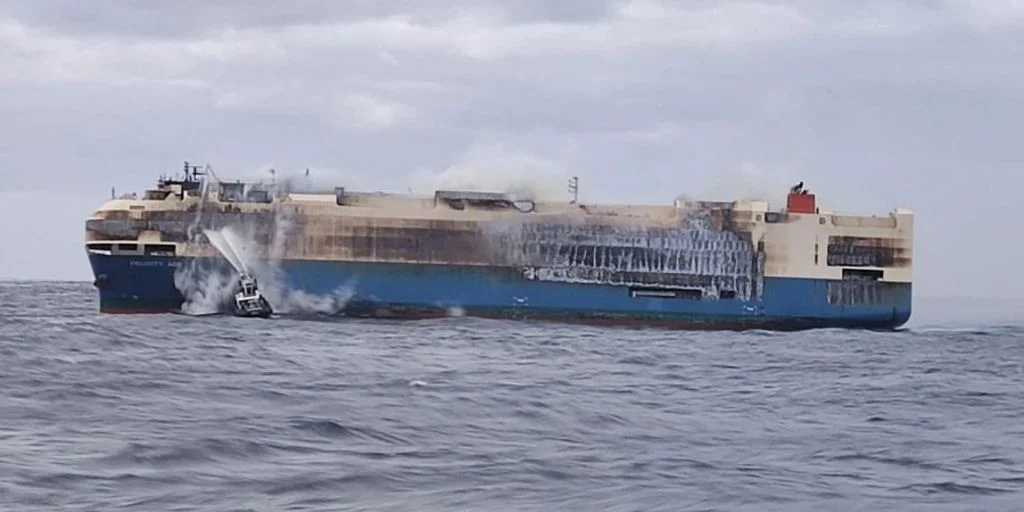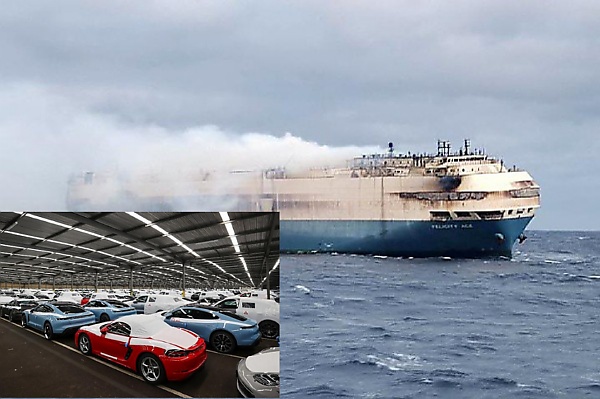Volkswagen Group is facing legal action over allegations that one of its Porsche electric vehicles was responsible for a fire aboard the cargo ship Felicity Ace, which subsequently sank with thousands of cars on board, including high-end brands like Porsche, Audi, Lamborghini, and Bentley.
The incident occurred in February 2022, when the Felicity Ace, a roll-on roll-off (roro) vessel carrying approximately $155 million worth of luxury vehicles, caught fire while traversing the Atlantic Ocean. Despite efforts to contain the blaze, the ship eventually succumbed, plunging to the ocean floor nearly two weeks later, taking with it nearly 4,000 vehicles destined for Rhode Island, USA.
The legal action against Volkswagen Group has been instigated by multiple parties, including Mitsui OSK Lines (MOL) Ltd., the operator of the ill-fated vessel, and Allianz SE, one of the insurers of the cargo aboard the ship.

Allegations levelled against Volkswagen Group suggest that the company failed to disclose the risks associated with transporting electric vehicles, specifically pointing to safety concerns related to the batteries powering the Porsche EV onboard.
In statements issued by MOL and Allianz, Volkswagen’s purported negligence in addressing known safety issues with its vehicles is underscored as a pivotal factor leading to the catastrophic loss of the Felicity Ace and its valuable cargo.
Both entities emphasize their obligation to pursue all avenues for compensation when negligence results in significant losses, reflecting the gravity of the situation and the potential impact on stakeholders.
The legal proceedings in Germany mark a significant development in the aftermath of the Felicity Ace incident, highlighting the complexities and repercussions associated with transporting electrified vehicles.
As investigations continue and legal battles unfold, the case serves as a cautionary tale regarding the importance of transparency and diligence in mitigating risks within the automotive supply chain.

